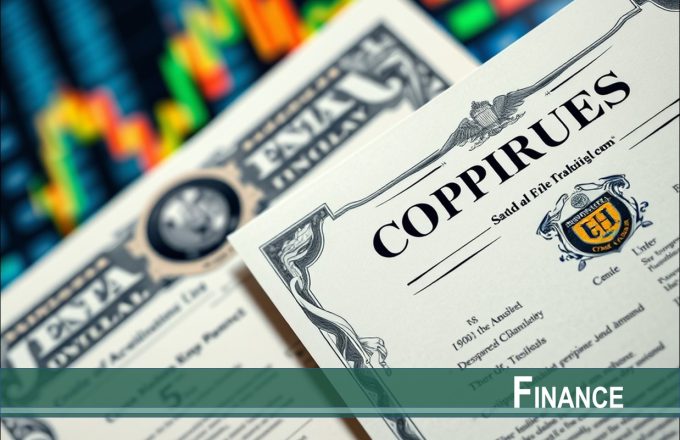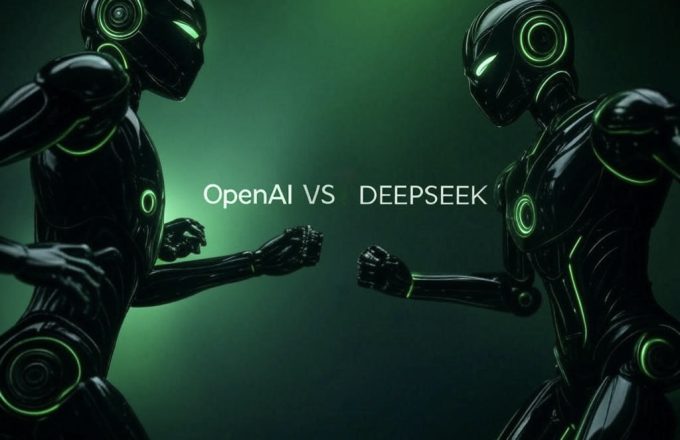Latest Research Publications
Research Insights
Global Scholars
Impact Stories
HKEJ Column
FT Chinese Column
In the Media
Mutual funds investing in illiquid corporate bonds actively manage Treasury positions to buffer redemption shocks. This liquidity management practice can transmit non-fundamental fund flow shocks onto Treasuries, generating excess return volatility. Consistent with this hypothesis, we find that Treasury excess return volatility is positively associated with bond fund ownership, and this pattern is more pronounced among funds conducting intensive liquidity management. Causal evidence is provided by exploiting the U.S. Securities and Exchange Commission’s 2017 Liquidity Risk Management Rule. Evidence also suggests that the COVID-19 Treasury market turmoil was attributed to intensified liquidity management, an unintended consequence of the 2017 Liquidity Risk Management Rule.
February 2025
The Review of Financial Studies
The Interactions of Customer Reviews and Price and Their Dual Roles in Conveying Quality Information
Customer reviews help communicate product information, but their effectiveness may suffer from selection bias (i.e., depending on factors, such as the individual experience and price, not all consumers may voluntarily write reviews). Consequently, a seller may have to resort to additional means (e.g., signaling through price in the context of an experience good) to convey its quality. This paper develops an analytical model to investigate the interaction of customer reviews and price with the presence of selection bias in marketing an experience good with uncertain quality to consumers. Our analysis reveals the dual roles played by both customer reviews and price in communicating quality information. On one hand, customer reviews may either directly convey product information with unbiased distribution of reviews or facilitate price signaling when reviews are biased because of selection. On the other hand, price may be adjusted to mitigate the selection bias of reviews to make them more informative, and it may also signal quality directly in the presence of review bias. As a result, we show that bias in reviews may actually benefit consumers without compromising information communication as the incentive to reduce review selection bias makes it credible and profitable for the high-quality seller to signal its type by undercutting the price that would be set if it is of low quality. We then extend our analysis to examine the information, profits, and welfare impacts of several important design elements of a review system as well as the impact of consumers’ aversion to risk. Finally, the implications of our findings on the management of user-generated content and pricing are discussed.
January-February 2025
Marketing Science
Short selling regulation has been a longstanding topic of debate in financial markets, particularly during times of crisis. While proponents argue that short selling aids in price discovery and market efficiency, critics raise concerns about manipulative short selling practices that can destabilize markets. This paper presents a theoretical model to analyze the impact of short selling, specifically manipulative short selling (MSS), on bank runs and efficiency. The model demonstrates that MSS can emerge as an equilibrium outcome driven by uninformed speculators seeking to profit from artificially depressing stock prices. The prevalence of MSS is influenced by the level of informed trading and coordination friction among creditors. We find that short selling bans can enhance welfare by mitigating the negative effects of MSS, particularly in scenarios with high coordination frictions. We also provide policy and empirical implications.
January 2025
Journal of Economic Theory
Executive agencies play a pivotal role in shaping the regulatory environment by crafting rules, enforcing regulations, and overseeing government contracts—all of which can have a profound impact on businesses. For firms, this potential impact creates a clear incentive for firms to influence these agencies, particularly during the critical stages of rulemaking and enforcement. In this context, lobbying emerges as a key tool that companies use to mold the regulatory landscape to their advantage. Unlike politicians, whose decisions are often swayed by electoral cycles and campaign contributions, agency officials are not elected, serve longer terms, and are less susceptible to direct political pressures. As a result, engaging in lobbying efforts with executive agencies is both more complicated and strategically crucial for firms operating within heavily regulated industries. However, the dynamics of such lobbying remain underexplored in the literature.
3 Jan 2025
Research
Climate change presents huge challenges for financial markets. How should firm-level exposure to climate change be measured? Does a risk premium for climate change exposure exist? If so, how does it evolve over time? Which underlying climate-related economic variables drive this risk premium? In light of these challenging questions, significant resources have been allocated to develop the area of climate finance to better grasp how the transition to a low-carbon economy affects financial markets. This paper provides additional evidence to understand more fully how climate-related risks and opportunities affect stock returns.
18 Dec 2024
Research
This paper explores green activist investing, whereby environmentally driven activists launch campaigns to promote green shareholder proposals aimed at reducing firms’ environmental impacts. Before 2017, such proposals were rare and seldom supported by large institutional investors. However, since 2020, their number has surged, averaging 55 per year, ranging from 30 in 2020 to 96 in 2023, with a variable success rate averaging 17%. The success of green proposals hinges on proxy votes by pivotal voters, mainly large institutional shareholders, who hold significant stakes across many firms. Together, BlackRock, State Street, and Vanguard alone own the largest shares in 75% of S&P 500 firms and cast 25% of proxy votes. These votes are publicly observable. Hence, this paper models green activism and proxy voting by strategic institutional blockholders who have heterogeneous reputational concerns and varying levels of commitment to green values.
12 Dec 2024
Research
While computer languages may sound alien to economics, I aim to showcase that good programming skills are conducive not limited to economic research, it can also open up endless career possibilities for you in the business world.
31 Jan 2022
Economics
As a teacher, I will push myself to understand the expectations of local employers' and the market dynamics of Hong Kong.
18 Jan 2022
Finance
As a science person, I am impressed by our students' strong business acumen. But as a teacher, other than teaching them how to use quantitative tools to make scientific claims, I also hope that I can encourage them to continue to stay inquisitive about the world and apply their classroom knowledge for the betterment of the society.
5 Jan 2022
Marketing
After President Donald Trump began his second term, he swiftly escalated the trade war by imposing a 25% import tariff on steel and aluminium products, along with ‘reciprocal tariffs.’ Dr. Jing Li, Deputy Program Director of International Business and Global Management at HKU Business School, said although Trump aimed to attract manufacturing back to the United States, history—such as the 1930 Smoot-Hawley Tariff Act—showed excessive protectionism often backfired, raising import prices, straining supply chains, and increasing uncertainty for businesses and consumers.
2 Apr 2025
Faculty
Could cryptocurrency mining have become a driving force for carbon reduction in China? As the global cryptocurrency market rapidly expanded, mining evolved into a billion-dollar industry. However, its high energy consumption attracted criticism and was a key reason for the Chinese government’s ban on mining in 2021. Despite this, Prof. Guojun He highlighted that appropriate electricity pricing policies could have enabled mining activities to promote renewable energy development and reduce carbon emissions.
26 Mar 2025
Faculty
Since its launch of ChatGPT in 2022, OpenAI, the US-based company, has maintained dominant leadership in the generative artificial intelligence (Generative AI) market. The field of AI innovation has long become a fiercely contested battleground, with the United States restricting China's development in this area by banning exports of high-end chips and blocking Chinese users from accessing ChatGPT—prompting Hong Kong users to rely on Virtual Private Networks (VPNs) for access. In 2024, however, a Chinese startup introduced the DeepSeek generative AI model, dramatically shifting the landscape and directly challenging ChatGPT's throne as the industry leader.
19 Mar 2025
Faculty
As millions worldwide are addicted to video games, governments and organizations are actively taking measures to curb this trend. Our research suggests that dynamic pricing can help solve the problem of gaming addiction.
3 Apr 2024
AI image generation is rapidly evolving, driving innovation in marketing, advertising design, and art creation. HKU Business School’s Professor of Innovation and Information Management, Prof. Zhenhui Jack Jiang, along with his research team, recently assessed 22 AI models. They reviewed the performance and potential risks of AI models in image generation.
20 Mar 2025
Quantamental investing—a strategy that melds traditional fundamental analysis with data-intensive quantitative methods—has surged in popularity over the past decade. Today, it stands on the cusp of a transformative era: advanced AI models, once prohibitively expensive, are becoming more capable, affordable, and widespread. This technological leap is poised to redefine how we identify and exploit market inefficiencies. Imagine a team of tireless, ever-alert junior analysts who can analyze millions of corporate filings, news articles, and social media chatter in seconds—that's essentially what these next-generation AI systems offer.
7 Mar 2025
As millions worldwide are addicted to video games, governments and organizations are actively taking measures to curb this trend. Our research suggests that dynamic pricing can help solve the problem of gaming addiction.
3 Apr 2024
After President Donald Trump began his second term, he swiftly escalated the trade war by imposing a 25% import tariff on steel and aluminium products, along with ‘reciprocal tariffs.’ Dr. Jing Li, Deputy Program Director of International Business and Global Management at HKU Business School, said although Trump aimed to attract manufacturing back to the United States, history—such as the 1930 Smoot-Hawley Tariff Act—showed excessive protectionism often backfired, raising import prices, straining supply chains, and increasing uncertainty for businesses and consumers.
2 Apr 2025
Faculty
Could cryptocurrency mining have become a driving force for carbon reduction in China? As the global cryptocurrency market rapidly expanded, mining evolved into a billion-dollar industry. However, its high energy consumption attracted criticism and was a key reason for the Chinese government’s ban on mining in 2021. Despite this, Prof. Guojun He highlighted that appropriate electricity pricing policies could have enabled mining activities to promote renewable energy development and reduce carbon emissions.
26 Mar 2025
Faculty





























